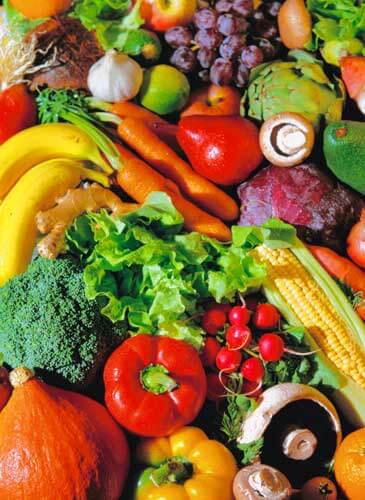As Americans in November commemorate Diabetes Awareness Month, Central Brooklyn Lions Club is urging community residents to eat healthy while living with or without diabetes, saying that healthy eating is “a cornerstone of healthy living.”
“But if you have the disease, you need to know how foods affect your blood sugar levels,” Brooklyn resident Doreen Thomas, the Jamaican-born service chairperson for this year, who is responsible for planning and implementing the activities for Central Brooklyn Lions Club, told Caribbean Life exclusively.
“It is not only the type of food you eat but also how much you eat and the combination of food types you eat at the same time,” added the retired registered nurse. “Keeping blood sugar levels within the range recommended by your MD (medical doctor) can be challenging, because many things make your blood sugar levels change, sometimes unexpectedly.”
Thomas said some factors to consider are foods, exercise, illness, alcohol and water.
“Learn portion size, make every meal well balanced as much as possible,” she said. “When you exercise, your muscles use sugar for energy, which helps your body use insulin more effectively. Therefore, develop a schedule and follow as closely as possible.
“During illness, your body produces stress-elevated hormones to help the body fight; but they also increase blood sugar levels,” Thomas added. “Try to stick to your meal plan as much as possible. Know when to call your MD. Learn relaxation techniques and coping mechanisms, which will help decrease blood sugar levels.
“Then there is alcohol, which can result in lowering blood sugar level shortly after consumption, which can aggravate diabetes complications, such as nerve damage and eye disease,” Thomas warned. “Therefore, choose your drink carefully – a light beer or dry wine preferable – and remember, do not drink on an empty stomach.”
She said water is important in both adults and children, “as it helps maintain all parts of the body to function properly.
“Following a healthy dietary pattern is essential for optimum blood sugar control, whether you have prediabetes or diabetes or want to lower your risk of developing these conditions,” Thomas said. “However, keep in mind that your overall dietary intake, as well as factors such as activity level and body weight, are most important when it comes to blood sugar control and protecting against chronic disease.”
She said having diabetes may mean making changes in what and how much one eats.
But she said it doesn’t mean that one has to give up all the foods one knows and loves.
“With a little planning, you can include your favorite dishes,” Thomas said, adding that “how you prepare is the key.”
She said the American Diabetes Association recommends the “Plate Method”: “no specific tools, no counting, just focus on filling up your plate with more non-starchy vegetables and less starchy foods and meats.
“It is simple, and it works — whether you are cooking at home or dining out,” said Thomas, stating that diabetes is a chronic (long-lasting) health condition that affects how one’s body turns food into energy.
“Most of the food you eat is broken down into sugar (also called glucose) and then released into your blood stream,” Thomas continued. “When your blood sugar goes up, it signals your pancreas to release insulin. Insulin acts as a key to release blood sugar into your body’s cell for use as energy.”

If one has diabetes, one’s body either do not make enough insulin or cannot use the insulin it makes, as well as it should.
When there is not enough insulin or the cell stops responding to insulin, Thomas said too much blood sugar stays in one’s blood stream.
“Overtime, that can cause serious health problems, such as heart disease, vision loss and kidney disease,” Thomas warned.
There are three main types of diabetes: Type 1, Type 2 and Type 3.
Type 1 is thought to be caused by an autoimmune reaction in which the body attacks itself by mistake that stops the body from making insulin.
For Type 2, Thomas said the body does not use insulin well and cannot keep blood sugar at normal levels.
She said about 90-95 percent of people with diabetes have Type 2.
“It develops over many years and is usually diagnosed in adults,” Thomas said. “But more and more children, teens and young adults are being diagnosed. This type can be prevented or delayed with healthy life style changes.”
Thomas said Type 3 or Gestational Diabetes (diabetes while pregnant) develops in pregnant women who have never had diabetes.
“These babies could be at higher risk for health problems,” she said. “This form of diabetes usually goes away after the baby is born, but increases the mother’s risk for Type 2 later in life. And the baby can also develop the disease later in their life.”
In the US, Thomas said 88 million adults, more than 1 in 3, have prediabetes.
“What’s more alarming (is that) more than 84 percent of them don’t know that they have it,” she said. “With prediabetes blood sugar levels are higher than normal but not high enough to be diagnosed as Type 2. The good news is, if you recognize this, you can take steps to reverse.
“Diabetes management requires awareness,” Thomas added. “Know what makes your blood sugar level rise and fall, and how to control these day-to-day factors.”
She listed the following foods, “which are excellent in lowering blood sugar and are also healthy”: broccoli, broccoli sprouts, sea food, pumpkin and pumpkin seeds, nut and nut butter, okra, flax seed, beans, lentils, carrots, bok-choy, chia seeds, kale and spinach.
Others are: Berries, such as raspberry, strawberry and blueberry; black berries; avocado, oats and oats bran; citrus fruits, such as oranges and grapefruit; eggs; apples; and yogurt.
“Remember to focus on portion size,” Thomas advised. “Eating from a smaller plate helps.”
She said Lions Club International Foundation (LCIF) has referred to diabetes as a global epidemic.
Through its Campaign 100 Empowering service, Thomas said LCIF has pledged to help reduce the prevalence of diabetes, improve the quality of life for those diagnosed with the disease, increase public awareness, sponsor diabetes screening, and emphasize healthy life style and other initiatives to improve the quality of life.

























